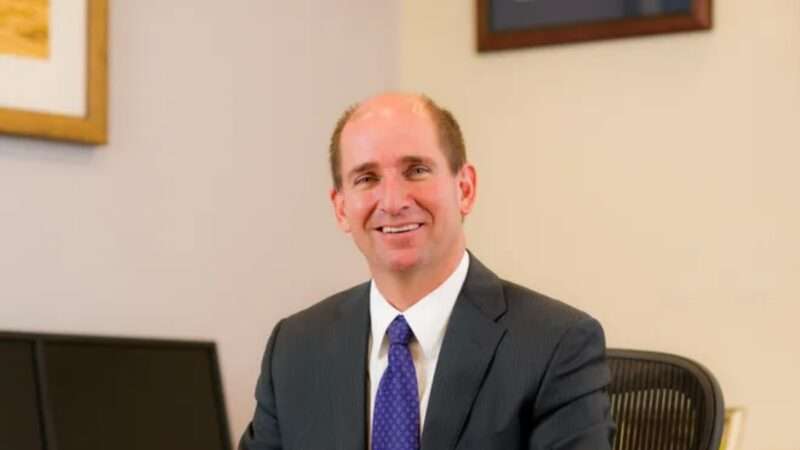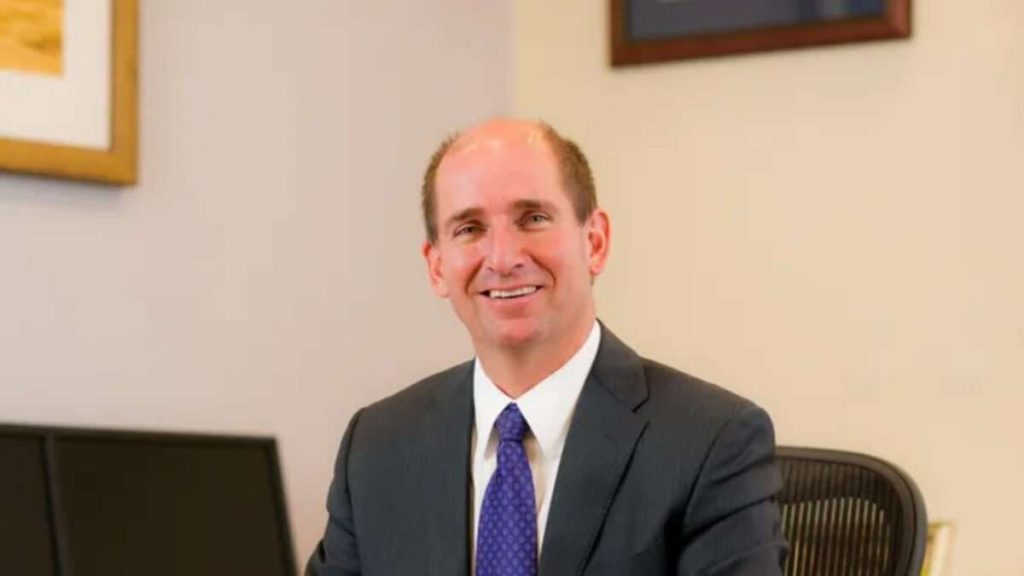
It will be a happy new year for Joseph Shepard, the outgoing president of Western New Mexico University (WNMU), who is scheduled to receive a $1.9 million lump-sum payment on January 15 as part of a severance package after resigning amid allegations of “wasteful” and “improper” spending. Under the agreement, which the public university’s five-member Board of Regents unanimously approved on December 20, Shepard, who had been receiving about $415,000 annually in salary and bonuses as WNMU’s president, will step down into a tenured position paying him $200,000 a year to teach a couple of business classes each semester. The salary is guaranteed for at least five years, adding another $1 million to the cost for taxpayers.
That sweetheart deal for Shepard came a month after a scathing report from New Mexico State Auditor Joseph M. Maestas highlighted $214,000 in travel spending that violated WNMU’s own policies, along with another $150,000 or so in improper charges on university credit cards. One example of the former: The university spent $25,500 in taxpayer money for six staff members to undergo training at a Ritz-Carlton resort in Palm Springs, California. Searchlight New Mexico, which has been digging into WNMU’s spending practices for more than a year, notes that the same course was available online.
The state auditor’s report, which covers July 1, 2018, through June 30, 2023, describes “$214,261.91 worth of spending covering 402 instances of domestic and international travel and lodging for university staff and leadership” that were “found to be noncompliant with university policies and rules.” It also cites “$149,264.08 worth of spending” on university credit cards by Shepard “covering 91 instances of procurement,” including noncompliant purchases of “high-end custom furnishings” for Shepard’s house on the WNMU campus in Silver City.
Maestas notes trips by Shepard that were covered by the university even though they “appear[ed] to be unrelated to official university business.” They included “trips related to other noneducational organizations [with] which the President is affiliated, such as the Finca Vigia Foundation, dedicated to saving author Ernest Hemingway’s Cuban legacy, and for conferences and events where his spouse [former CIA officer Valerie Plame] was a guest speaker such as the Simmons Leadership Conference.”
The investigation “found that the travel requests and travel reimbursements provided by WNMU for the University President and members of the Board of Regents during the period” were “consistently noncompliant with university policies.” The report cites many cost-control deficiencies, including international travel “lacking any documentation articulating the business need, purpose, justification, or authority for the travel.” The audit also found meal expenditures and upgrades in seating, amenities, and lodging that likewise were “lacking any documentation articulating the business need or purpose justification or authority.”
While traveling, Maestas notes, Shepard improperly used his university credit card to buy “alcohol, food or room service.” Although the university “was subsequently reimbursed for the disallowed purchases with private funds by the university’s Foundation,” the report says, WNMU “appears to have affirmatively disregarded its policy and allowed the initial use of public university funds rather than private foundation funds” for those purchases.
The report notes Shepard’s “use of a university credit card to purchase high-end custom furniture” at a total cost of about $25,000. Although Plame was not a WNMU employee, she was issued a university credit card, which she used to buy an “oriental sofa” from Etsy for $1,488.27 and to pay $4,073 for a purchase from the fireplace company Woodland Direct. Maestas notes that “the University’s purchasing card holder agreement applies to university employees, requires approval of their supervisor, and any violation of the agreement references sanctions which can only be enforced on university employees.”
In a November 18 letter to Board of Regents President Mary E. Hotvedt, Maestas said WNMU had “engaged in the waste of public funds” through “excessive or extravagant domestic and international travel,” “improper use of procurement and university credit cards,” and “expense accounts and purchasing cards” for “a non-University employee.” He described “an appearance of management overreach and a lack of a strong ‘tone at the top'” at WNMU.
“Without the proper example being set by the University’s management and Board, which is fundamental to an effective internal control system, any disincentives for university employees to engage in inappropriate or extravagant travel spending are limited or removed,” Maestas wrote. “Further, University management and Board failed to uphold their fiduciary responsibilities by neglecting to adhere to the corresponding elements as established in the University’s policies, procedures, and rules regarding travel, per diem, and procurement.”
Maestas noted that WNMU, in response to reports of improper spending, had “taken proactive steps to strengthen the University’s internal control structure” and “engage in an external forensic special audit to further review these and related issues.” But he warned that “complacency or indifference to oversight…exposes the University’s governing body and leadership to the threat of further waste” and “opens the door for potential fraudulent acts to occur, each of which negatively impacts the university and its finances.”
Responding to the report, Hotvedt thanked Maestas for his “time and insights,” which she conceded raised “serious concerns.” But she said those concerns “have been addressed” by a “comprehensive review of cost disparities,” policy updates that “align with applicable state guidelines and regulations,” “revised travel and procurement procedures,” “staff training to ensure compliance,” and “an independent cost-benefit analysis of international initiatives.”
Shepard, for his part, has defended his lavish spending as necessary to support fundraising and recruitment of foreign students. During the period covered by the state audit, Searchlight New Mexico notes, “international students made up less than 2 percent of the university’s entire student body,” although that share “has grown by a small amount” since then.
On the day that the Board of Regents approved his severance package, Shepard complained that he had not received “due process” from the state auditor’s office. “I leave my post not in defeat, but with a deep understanding that it is the right thing to do, to advance that which I dearly love,” he said.
Stephanie Rodriguez, New Mexico’s secretary of higher education, called Shepard’s resignation “long overdue,” adding: “I have been and remain deeply troubled about the reports of gross negligence and mismanagement of taxpayer funds at Western New Mexico University. The health and stability of WNMU moving forward will require further examination and accountability.”
Given that the regents were implicated in wasteful spending along with Shepard, it is not surprising that they were keen to quash the scandal, even at the cost of another $3 million in squandered taxpayer money. The Santa Fe New Mexican notes that the regents sealed the deal “without ever mentioning the amount of public money Shepard will receive.” But news of the severance package provoked outrage among members of WNMU’s faculty.
Keen to act before Shepard gets his payout, the WNMU Faculty Senate scheduled a meeting for this Thursday to consider a vote of no confidence in the Board of Regents and a demand for the resignation of all its members. “We call upon our state elected officials to work to remove any who will not resign, in accordance with the Constitution of the State of New Mexico,” a draft of the statement says, “and to use any legal authority at their disposal to halt the recent severance agreement” with Shepard.
Phillip W. Schoenberg, president of the Faculty Senate, noted a “unanimous request” for the meeting from “the voting faculty [at] the School of Business,” who “feel particularly outraged by the severance agreement.” They complained that the regents had offered Shepard the consolation position in their school without consulting anyone there.
“The decision to approve such a substantial payout to a president who has been the subject of past accusations of financial misconduct” is “troubling,” said Jorge Romero-Habeych, an assistant professor at the business school. “Furthermore, the package appears to be a clear conflict with the everyday struggles faced by average New Mexicans, many of whom are living paycheck to paycheck and rely on the institution to serve the public good. The optics alone are damaging, and the ethical implications cannot be ignored.”
The post A University President Accused of Squandering Public Money Resigns in Exchange for a $2 Million Payout appeared first on Reason.com.







